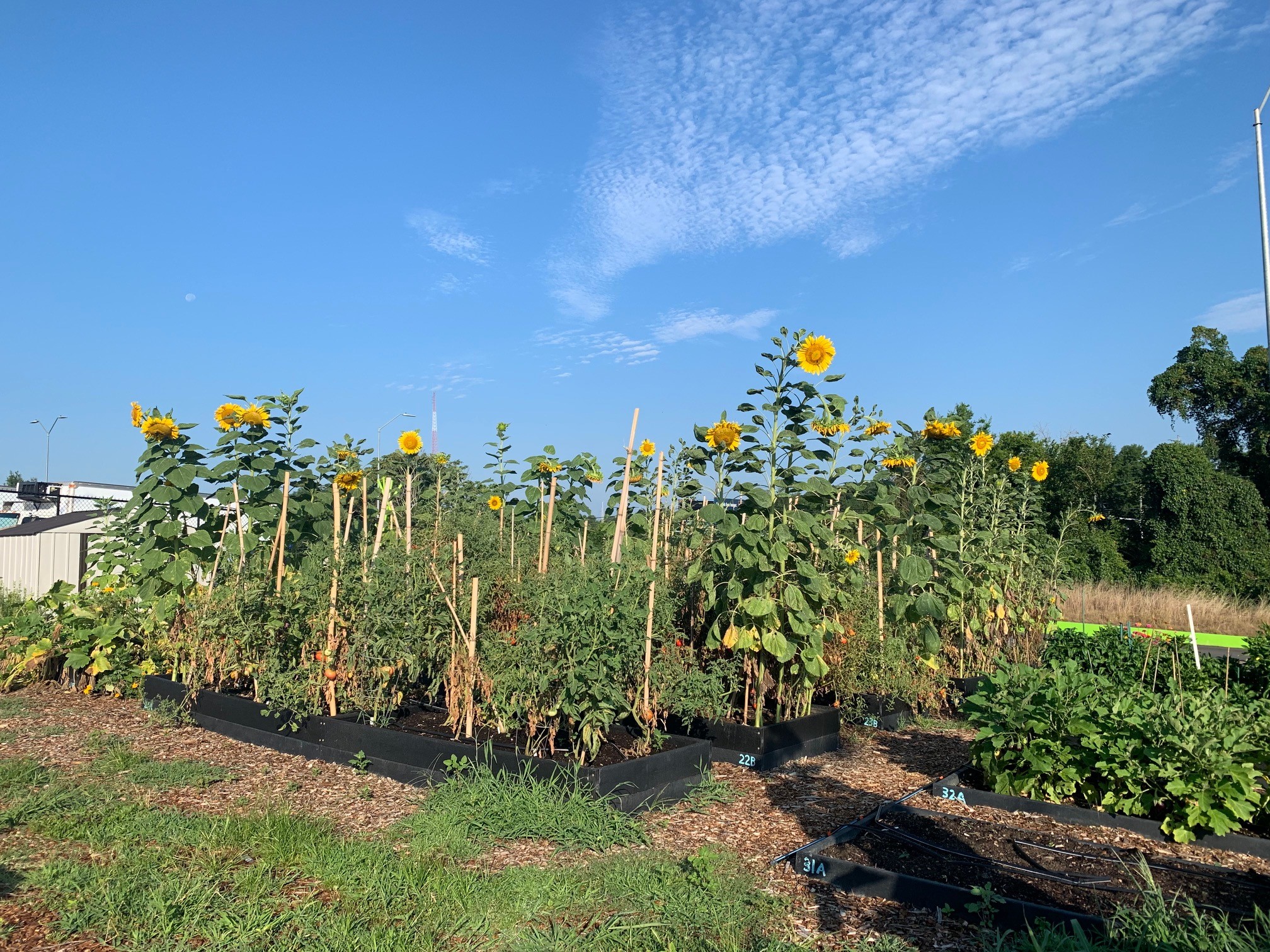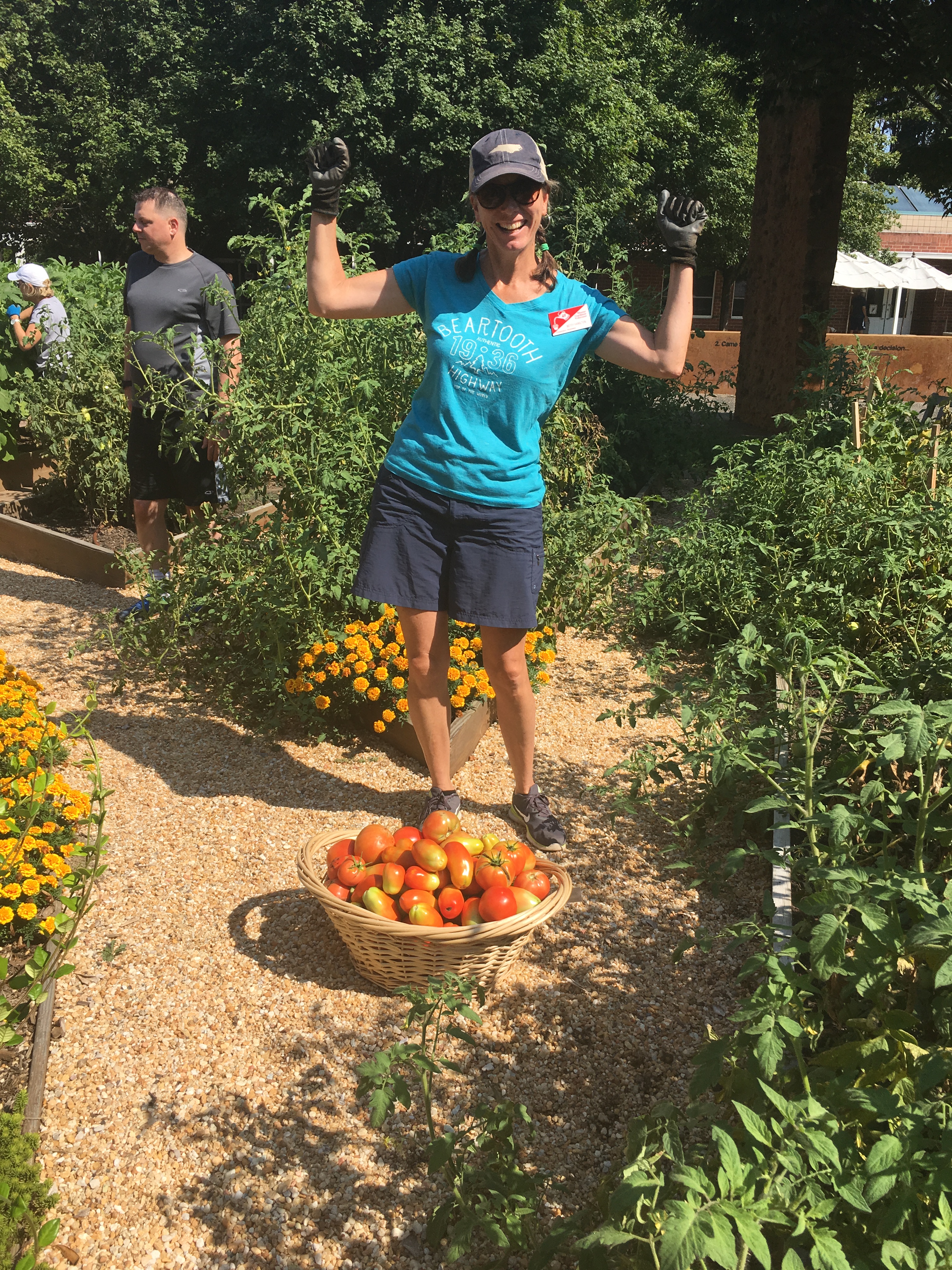School and Community Gardens
go.ncsu.edu/readext?983303
en Español / em Português
El inglés es el idioma de control de esta página. En la medida en que haya algún conflicto entre la traducción al inglés y la traducción, el inglés prevalece.
Al hacer clic en el enlace de traducción se activa un servicio de traducción gratuito para convertir la página al español. Al igual que con cualquier traducción por Internet, la conversión no es sensible al contexto y puede que no traduzca el texto en su significado original. NC State Extension no garantiza la exactitud del texto traducido. Por favor, tenga en cuenta que algunas aplicaciones y/o servicios pueden no funcionar como se espera cuando se traducen.
Português
Inglês é o idioma de controle desta página. Na medida que haja algum conflito entre o texto original em Inglês e a tradução, o Inglês prevalece.
Ao clicar no link de tradução, um serviço gratuito de tradução será ativado para converter a página para o Português. Como em qualquer tradução pela internet, a conversão não é sensivel ao contexto e pode não ocorrer a tradução para o significado orginal. O serviço de Extensão da Carolina do Norte (NC State Extension) não garante a exatidão do texto traduzido. Por favor, observe que algumas funções ou serviços podem não funcionar como esperado após a tradução.
English
English is the controlling language of this page. To the extent there is any conflict between the English text and the translation, English controls.
Clicking on the translation link activates a free translation service to convert the page to Spanish. As with any Internet translation, the conversion is not context-sensitive and may not translate the text to its original meaning. NC State Extension does not guarantee the accuracy of the translated text. Please note that some applications and/or services may not function as expected when translated.
Collapse ▲School and community gardens are growing in Wake County! To support this growth, a variety of tools and programs are available to help support new and existing gardens.
Informational Resources
- Ready Garden Grow Handbook– Ready-Garden-Grow covers the basics of vegetable gardening. The goal of this research-based handbook is to help a beginner gardener successfully grow vegetables.
- Ready Garden Grow YouTube Series-In 2021 Extension Master Gardener volunteers recorded the Ready Garden Grow Series via Zoom. The class is broken down into short videos for each section of the lecture and one long video of the entire class.
- North Carolina Extension Gardener Handbook– This 21-chapter handbook covers research-based gardening information that helps readers be successful gardeners and good stewards of the environment.
- Seasonal Planting Calendar for Central North Carolina– Want to know what and when to plant? Look no further than NC’s seasonal planting calendar.
Support Services by NC State Extension Master Gardener℠ (EMG) volunteers of Wake County
 EMG volunteers work with the North Carolina Cooperative Extension to provide non-commercial gardeners in their communities with unbiased, research-based information on gardening. To become an EMG volunteer, you must complete the certification program, participate in continuing education, and actively engage in volunteering in the community.
EMG volunteers work with the North Carolina Cooperative Extension to provide non-commercial gardeners in their communities with unbiased, research-based information on gardening. To become an EMG volunteer, you must complete the certification program, participate in continuing education, and actively engage in volunteering in the community.
Extension Master Gardener℠ Hotline
Extension Master Gardener volunteers are available to answer horticulture questions from school gardens, community gardens, and homeowners. You can call the hotline at (919)250-1084, M-F, 9 a.m.–noon and 1–4 p.m. or email mgardener@wake.gov.
School and Community Garden Consultations
Extension Master Gardener volunteers will visit local school and community gardens to provide site evaluations, problem determination, education and/or gardening advice. A breakdown of services that Extension Master Gardener volunteers can and cannot provide is available here: Master Gardener School and Community Garden Support Services. Please fill out this Google form to request an EMG volunteer consultation on school gardens, and contact the Horticulture Agent, Deanna Bigio, at dibigio@ncsu.edu for an EMG volunteer consultation on community gardens.
Composting Classes
Extension Master Gardener volunteers are available to teach composting and vermicomposting at community gardens, garden clubs, schools, libraries, and community groups. There is information about composting and vermicomposting at Composting. Email Deanna Bigio, at dibigio@ncsu.edu to arrange an EMG volunteer led class composting.
Connect with us on Facebook to stay up-to-date on educational opportunities with Extension Master Gardener volunteers of Wake County!
School Gardening Resources
- Wake County Public Schools Edible Gardening Initiative– The Edible Gardening initiative was established to support the growing desire for school gardens within WCPSS.
- Growing Safer Gardens: Guide from N.C. Cooperative Extension detailing how to reduce food safety risks in school and community gardens.
- Farm Bureau’s Ag in the Classroom: Book of the Month program, curriculum, grants, and workshops.
- North Carolina 4-H Garden-based Curriculum: List of curriculum available through your local 4-H agent. Curricula can be used in in-school and after-school settings. Beverly Schieman is the 4-H Agent for Wake County, her contact information can be found on the Wake County Center website.
Community Gardening Resources
- Map of Community Gardens, Food Pantries, Farmer’s Markets and Snap Retailers in Wake County
- Collard Greens and Common Ground: A North Carolina Community Food Gardening Handbook: This comprehensive guide covers every step of the community gardening process from finding and organizing volunteers to garden design and management. Whether you are new to community gardening or a seasoned veteran, this publication will help make your community garden a success.

- North Carolina Community Garden Partners: A network of gardeners and supports who share resources, information, and experience with new gardens and with each other. Be sure to add or update your garden’s information in their NC Garden Directory!
- Extension Master Gardener volunteers of Wake County hotline and consultations (see above).
Publicaciones y Recursos en Español
- Guía de Horticultura para Principiantes: guía básico para el cultivo de hortalizas en Carolina del Norte, por la Extensión Cooperativa de la Universidad Estatal de Carolina del Norte.
- Guía Para Desarrollo de un Huerto/Jardín Comunitario: guía para ayudar a los grupos u organizaciones comunitarias e iniciar y mantener un huerto o jardín comunitario, por la Extensión Cooperativa de la Universidad de California.
Events
Ready-Garden-Grow: An Introduction to Vegetable Gardening is a 2.5-hour class designed to teach beginner home gardeners what they need to know to start their first vegetable garden in an urban environment. Topics covered include how to plan, prepare, plant, care, and harvest a vegetable garden with a focus on raised beds. Class size varies by site but is targeted to be 25 students
- Classes are normally offered February-March. 2024 class information will be available soon.
Workshops and Networking
- NC Farm Bureau’s Ag in the Classroom workshops
- Inter-Faith Food Shuttle’s Growing Garden Classrooms series
- Extension Master Gardener Volunteer of Wake County 2024 training Master Gardener training program
- The Well Fed Garden Events
- Piedmont Picnic Project Classes
- JC Raulston Arboretum educational series
Grant Opportunities
Starting a garden doesn’t have to break the bank! Before applying for a grant, check out some tips for Gardening on a Budget.
- NC Farm Bureau’s Ag in the Classroom grant
- N.C. Cooperative Extension’s list of funding opportunities

Connect with your municipality to learn more about how they support school and community gardens!
Page Authored by: Kati Scruggs, School and Community Garden AmeriCorps VISTA




